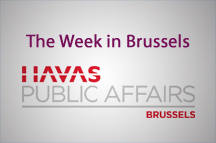 Following an extended holiday period, the return to work has been relatively gentle, with European Commissioners travelling to Latvia, greeting the start of the Latvian rotating Presidency of the Council of Ministers and, with a light agenda for the European Parliament, many are whiling away the dark days analysing the Commission's Work Programme for 2015, published just before the Christmas holidays. This work programme differs in both style and substance from those of previous Commissions and seems to be a conscious attempt to demonstrate a sea-change in policy development. Instead of the traditional 5-year strategy this first work programme only covers 2015. The scope is very focussed, featuring a strictly limited number of new legislative proposals and a more extensive list of exiting proposals scheduled for review and/or withdrawal.
Following an extended holiday period, the return to work has been relatively gentle, with European Commissioners travelling to Latvia, greeting the start of the Latvian rotating Presidency of the Council of Ministers and, with a light agenda for the European Parliament, many are whiling away the dark days analysing the Commission's Work Programme for 2015, published just before the Christmas holidays. This work programme differs in both style and substance from those of previous Commissions and seems to be a conscious attempt to demonstrate a sea-change in policy development. Instead of the traditional 5-year strategy this first work programme only covers 2015. The scope is very focussed, featuring a strictly limited number of new legislative proposals and a more extensive list of exiting proposals scheduled for review and/or withdrawal.
 The unusually political document is in line with the ten priorities set out by Juncker during last summer’s election campaign. The intent is made clear: the Commission was voted into office “to do different things and to do things differently”. It is focused on jobs and growth, which will mainly be promoted through the proposed Investment Plan and a new Strategic Investment Fund. It also prioritises lightening the regulatory load and it makes the strongest commitment yet seen to review and improve rules where they are outdated, out of line with the Commission’s priorities or blocked.
The unusually political document is in line with the ten priorities set out by Juncker during last summer’s election campaign. The intent is made clear: the Commission was voted into office “to do different things and to do things differently”. It is focused on jobs and growth, which will mainly be promoted through the proposed Investment Plan and a new Strategic Investment Fund. It also prioritises lightening the regulatory load and it makes the strongest commitment yet seen to review and improve rules where they are outdated, out of line with the Commission’s priorities or blocked.
Only 23 new initiatives are proposed (against an average of 150 per year). Furthermore, it proposes the withdrawal or amendment of 80 existing proposals (albeit following consultation with the European Parliament). The ten priority areas are largely aimed at kick-starting the economy and it is striking that several areas of recent policy prioritisation such as healthcare or environmental policy, receive no or only scant mention.

So is this programme indicative of a further reduction in policy development following the long pause of the 2014 institutional changes? Several factors suggest that this is not the case. The work programme itself requires consultation with the Parliament before a final decision is taken on the proposals being reviewed. The Parliament has already indicated its intention to play an extremely active role in this discussion. Furthermore, has anyone seen a Parliament decide to do less work to demonstrate its relevance to its electorate? Especially following an election where some of the electorate signaled both in the votes cast and also by the low turnout in some countries, their disillusion with the European institutions and construct. It is therefore extremely likely that the Parliament will keep itself busy not only by earlier and more detailed policy review, but also by policy development, with pressure applied to the Commission to adopt its ideas.
Finally, the European Commission services themselves, once they have recovered from the shock of the biggest organisational shake-up for years, will surely adapt their policy development to the new climate. It is also to be hoped that the Commission will make good on a commitment contained within the work programme to implement and enforce the rules that work. Whether this signals a more vigorous enforcement policy, for instance of the internal market rules, remains to be seen.
In short, we have entered new waters and uncertainty reigns as to how the new system will work in practice. These are both conditions which should keep us extremely busy in 2015.














